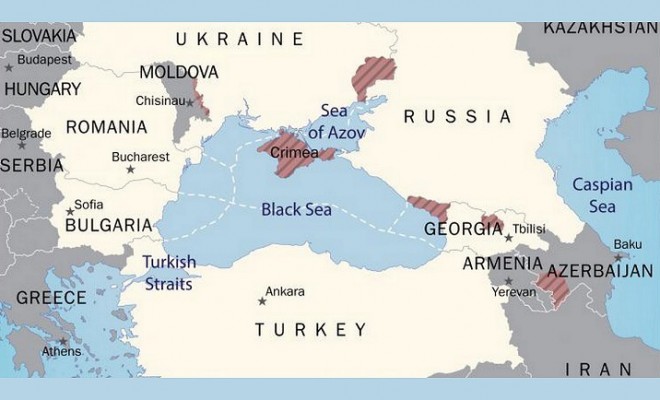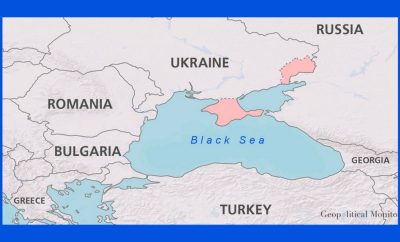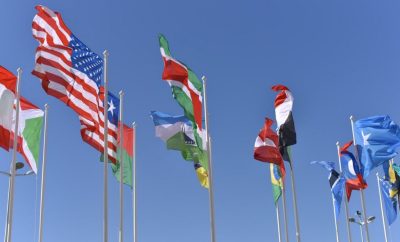
Turkey’s Black Sea Natural Gas Find is No Economic Miracle
Επιλεγμένα άρθρα και αναλύσεις που φωτίζουν όλες τις εξελίξεις και οπτικές
With the announcement of a large natural gas find in the Black Sea, Turkey is looking to become a power player in the energy sphere. But the discovery is nowhere near large enough for the country to become energy independent, and domestic and international constraints on Ankara mean it likely will not stop its aggressive foreign policy moves in the near future.
Energy issues lie at the heart of Turkey’s aggressive quest for great power status throughout the Eastern Mediterranean and the Levant. This fact makes President Recep Tayyip Erdogan’s Aug. 21 announcement of the biggest natural gas find in Turkish history highly important. In his announcement, Erdogan said the find constituted 320 billion cubic meters (bcm) and is part of a much larger source. Turkey says it expects to make gas from the find available to the market in 2023.
Despite the hype, this discovery on its own does not resolve Turkey’s gas issues. Indeed, it is by no means clear that this amount of gas can be turned over to the market, let alone that abundant linked reserves are sitting in the Black Sea waiting for Turkey to discover them. Neither is it obvious that this discovery will moderate Turkey’s aggressive behavior in the Eastern Mediterranean.
Συνέχεια ανάγνωσης εδώ
Πηγή: cgpolicy.org
-Erdogan pulls a rabbit out of his hat with Black Sea gas find, but is it all it seems?
Turkish President Recep Tayyip Erdogan is in desperate need of good news. He faces a host of problems at home, including a steadily deteriorating economic situation. The Turkish lira tumbled to a record low last week despite officials’ efforts to prop it up with massive sales of the country’s rapidly dwindling foreign-currency reserves. Economists estimate that the central bank spent $65 billion of its foreign-currency reserves in the first six months of this year to defend the lira, far more than the $40 billion it spent last year, and as of mid-August its remaining reserves were down to just $45.4 billion. Erdogan’s problems are compounded by high unemployment, a resurgent coronavirus pandemic, and breakaway political parties that could eat into his already waning support among conservatives.
Συνέχεια ανάγνωσης www.mei.edu
-What is Turkey’s role in Tripoli political tremor?
The power struggle inside the Tripoli government is drawing Turkey into a political brouhaha with unpredictable consequences.
The arm wrestling in Libya’s Government of National Accord (GNA), which boiled over with Prime Minister Fayez al-Sarraj’s suspension of the powerful Interior Minister Fathi Bashagha, has brought into question Turkey’s role in the power struggle among its allies in Libya. Some believe the row is an unwelcome development for Turkey, while others see it as a sign that Ankara has opted to back Bashagha, its No. 1 man in Libya, against Sarraj.
Συνέχεια ανάγνωσης: www.al-monitor.com
-An appropriate European Union response to tensions in the Eastern Mediterranean
If the European Union can mediate effectively to resolve current Greek-Turkish tensions over energy in the Eastern Mediterranean, it could also provide an opportunity to tackle more deep-rooted problems.
The European Union is seeking to mediate in a naval confrontation on its doorstep, in the Eastern Mediterranean, which involves NATO partners Greece and Turkey, as well as EU member Cyprus. EU foreign ministers are discussing the issue and, without de-escalation, sanctions against Turkey could be implemented. But so far, the two most powerful EU nations have adopted a ‘good cop, bad cop’ approach that conveys different and confusing messages – and has not prevented escalation. Chancellor Angela Merkel, with the added authority of holding the EU’s six-month revolving presidency, has launched a German initiative to prevent escalation, reduce tensions and overcome longstanding conflicts. But French President Emmanuel Macron, while not eschewing mediation, has opted for a show of force, sending French naval vessels into disputed waters to counter the presence of Turkish warships.
Συνέχεια ανάγνωσης www.bruegel.org




